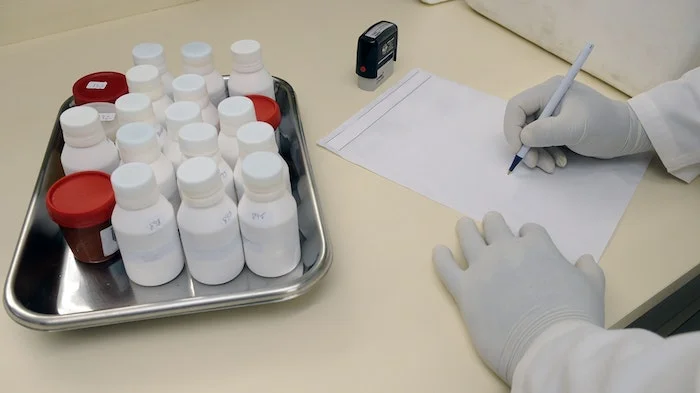Drug & Alcohol Rehab in Cleethorpes
Rehab is the most effective way of beating addiction and restoring a substance-free lifestyle. But how does it achieve this, and why is it the most effective means of becoming sober?
The secret to rehab’s success lies in its three-stage approach to treatment.
It is organised so that individuals build from the progress they have made, making what might seem like the impossible task of becoming sober a logical and gradual sequence of steps.
Start your recovery journey today by calling our expert team to access drug & alcohol rehab in Cleethorpes on 0800 088 66 86
Steps involved in Drug & Alcohol Rehab in Cleethorpes

Step 1: cleansing the body
To begin, drug and alcohol rehab in Cleethorpes looks at the body and ensures that it is relieved of its physical dependence on a drug. While this does not develop with every addiction, many substances corrupt the body into becoming reliant on them to function.
Having a physical dependency means individuals cannot break free from the physical craving they feel to use a substance. Without relieving it, they won’t be able to engage with why they began misusing drugs or alcohol in the first place.
Detox, therefore, functions to gradually ease the body into sobriety. By reducing consumption over the course of 7 to 10 days under the supervision of doctors, the treatment allows for the physical dimension of addiction to be neutralised.
Step 2: rewiring the mind
With physical sobriety achieved, rehab is able to progress in figuring out why addiction developed in the first instance. Every addiction, regardless of whether physical dependence develops, begins because certain triggers incentivise substance misuse.
To do this, therapy helps individuals identify, understand, and work through these triggers. Sessions usually follow the course of recognising why a certain trigger affects behaviour in the way it does, then practising healthier ways of coping with it.
By the end of therapy, the desired outcome is for an individual to be able to independently resist the influence of triggers and respond to them in a way which protects physical sobriety.
Step 3: preparing for the future
Before drug and alcohol rehab in Cleethorpes can end, individuals must undergo one final treatment. With physical and psychological sobriety achieved, it comes time to learn how to protect that progress in the weeks and months following rehab.
Relapse prevention aims to do this by helping individuals prepare for their future interactions with the triggers they identified during therapy. It is much more practical in its approach, focusing on how triggers can be minimised or avoided in real-life terms.
Primarily, the techniques of relapse prevention look to equip individuals with the skills of managing themselves through temptation. Knowing that individuals will be without the support of rehab staff, it looks to strengthen their resolve and give them the tools to resist.
Why is medically supervised detox so important?

Detox is an important stage of drug and alcohol rehab in Cleethorpes, but some individuals may think that they can conduct it by themselves without needing to enter a treatment facility. The reality, however, is that medical supervision is the key to a successful detox.
Alone, individuals will be tempted to suddenly quit their substance use – or go ‘cold turkey’. This is an incredibly dangerous approach which incites withdrawal which could seriously harm physical or mental well-being.
In rehab, however, medical staff can pace an individual’s weaning from a substance to accommodate for how well their body is coping. This is not only much safer than going cold turkey, but it is also much more effective.
Medical supervision also allows for the invaluable provision of medications. Withdrawal is minimised by the gradual approach of detox, but even if it does arise, Benzodiazepines can be carefully prescribed in order to dampen symptoms and protect well-being.
Start your recovery journey today by calling our expert team to access drug & alcohol rehab in Cleethorpes on 0800 088 66 86
The many faces of addiction therapy

Engaging with addiction therapy is not just about sitting with a therapist and talking about your emotions and experiences. This stage of drug and alcohol rehab is incredibly diverse, and individuals can access a wide range of therapeutic support with facing triggers.
Below are some of the most popular forms of therapy which individuals can access within addiction treatment:
Cognitive Behavioural Therapy (CBT)
Negative patterns of thinking can become so cyclical that individuals cannot resist the ways in which they consistently influence behaviour. In CBT, individuals learn how to identify and interrupt these thoughts, replacing them with healthier perspectives and worldviews.
Dialectical Behavioural Therapy (DBT)
Emotions that become difficult to manage can be the fuel of unhealthy behaviours. Anger, sadness, and regret – these can all become so hard to cope with that individuals incorporate substance abuse into their lives. DBT exposes these feelings and talks them through.
Family therapy
When disputes and tensions within the family provoke substance abuse, family therapy helps address these issues between relatives. Using conversation, it allows for problems to be eased and for the threat of relapse to be properly managed going forward.
Holistic therapy
Rather than focusing on a single trigger, therapy can also work to improve an individual’s entire health and well-being. The holistic approach aims to use music, art, mindfulness, and other activities to instil a new sense of independence and purpose.
Group therapy
Working with other recovering individuals, sessions utilise conversation and sharing to create an atmosphere of unity and support. Speaking with those who understand what addiction is like, individuals can gain a valuable sense of optimism and camaraderie.
Start your recovery journey today by calling our expert team to access drug & alcohol rehab in Cleethorpes on 0800 088 66 86
How much money will I need for drug and alcohol rehab in Cleethorpes?

In order to access drug and alcohol rehab in Cleethorpes, individuals will need to pay for it. But how much can they expect to pay?
On average, a week of addiction treatment in the UK comes to around £14,000. This is not the only price available, however, and there are plenty of programmes which can be found that charge between £1,000 and £10,000.
Luxury programmes, which prioritise aspects of relaxation and fun, can also be found at varying prices, though these tend to be in the area of £70,000 and above.
Thinking about the price of treatment can be really daunting, and not everyone will have savings which they can rely on to help. However, individuals can look into local council funding which can be accessed by those who need rehab but can’t afford it.
How long will I need to be away from my job and family?

In order to spend enough time in drug and alcohol rehab in Cleethorpes to beat addiction, individuals will need to step away from their everyday lives. Family, work, friends – individuals need to prioritise rehab for a while, but how long can this be expected to be?
Most people will spend 28 days working through rehab. Detox lasts 7 to 10 days, and therapy and relapse prevention combine for a further 21 days. This time frame offers plenty of time for an addiction to be thoroughly worked through.
In some cases, however, the process can take longer. Rehab tends to extend beyond 28 days if an individual has a particularly severe condition, a pre-existing health condition which complicates treatment, or an unwillingness to try and get better.
Start your recovery journey today by calling our expert team to access drug & alcohol rehab in Cleethorpes on 0800 088 66 86
What will happen when rehab ends?

Rehab always comes to an end, but the end of treatment doesn’t mark the end of recovery. When the 28 days of treatment reach their end and individuals are allowed to return home, there still exists the need to work through triggers and continue making positive progress.
When rehab ends, individuals can access aftercare services. These sessions can provide a wide range of support for individuals, both in terms of their mental and physical health, and push them to continue their recovery work.
Aftercare also offers individuals the opportunity to access support more tailored to their personal experience. For example, those who are recovering from alcoholism can access Alcoholics Anonymous sessions which facilitate conversations specific to alcohol misuse.
Denial: an all-too-common obstacle

Although there might be obvious signs of addiction, an individual is not guaranteed to realise or admit to the problem. It is common for those who live with substance abuse to exhibit unbreakable denial [1], and this poses a huge obstacle to recovery.
Not being able to recognise the presence of a substance use disorder means individuals are not going to seek help when they need it. This delay to getting help means addiction can develop into an increasingly problematic condition, increasing the risk to health.
Breaking through denial is really difficult. It often requires those around an individual to directly confront their behaviour – sometimes via an intervention – or the person themselves to see the damage they are doing to their own well-being or others’.
Start your recovery journey today by calling our expert team to access drug & alcohol rehab in Cleethorpes on 0800 088 66 86
Why is dual diagnosis so integral to effective recovery?

Dual diagnosis refers to the identification of addiction and other mental health conditions co-existing [2]. Whether it is anxiety, depression, trauma, or something else, the term functions to recognise how these conditions can be linked with addiction.
The reason for dual diagnosis’s significance lies in how it empowers treatment. By highlighting the role a mental health condition has played in the development of addiction, or the role it continues to play, dual diagnosis gives therapy something to aim at.
Rather than wasting time searching for the cause of addiction, therapy can efficiently target anxiety, for example, and provide individuals with methods of coping with it that are healthier and more sustainable.
Dual diagnosis can also identify if addiction has caused a mental health problem. Substance abuse can change the body and brain so much that it provokes psychological issues, but recognising this allows rehab to lend extra support to get individuals back to top health.
Finding the right drug and alcohol rehab in Cleethorpes for you

Are you wanting to start addiction treatment but are uncertain about what facility or treatment centre to trust?
Deciding where to get help is really important, so here are a few things to keep in mind when searching for an appropriate facility:
- Money – Your search must be restricted by what you can reasonably afford. Look for programmes that fall within your budget or those which would be accessible with the help of council funding.
- Treatments – Everyone’s addiction will be slightly different, and so requires slightly different approaches to treatment. Speak with a doctor and get a sense of what treatments would benefit you most.
- Reputation – Look at online reviews of treatment facilities and see which are most favoured among previous patients. Be sure to look out for information about accommodation, catering, and staff.
Start your recovery journey today by calling our expert team to access drug & alcohol rehab in Cleethorpes on 0800 088 66 86
How Rehab Recovery can help you
It takes a lot of courage to decide that you need addiction rehab. Individuals who start looking for help should be immensely proud, but that doesn’t mean that they have to find what they need by themselves.
At Rehab Recovery, we are here to help you get started on the right foot.
Whether you want to know more about drug and alcohol rehab in Cleethorpes, the signs and symptoms of addiction, or what comes after, our dedicated team are ready and available.
Give us a call at 0800 088 66 86 and let Rehab Recovery help you start your road to recovery!
References
[1] http://pure-oai.bham.ac.uk/ws/files/25519189/DENIAL_PICKARD_M_L_FINAL_PRE_PROOF.pdf


